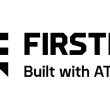MSV announces Sprint Nextel deal, mutual-aid talkgroup
Mobile Satellite Ventures announced a resale agreement with Sprint Nextel, which will market MSV’s mission-critical satellite communications service as a complement to the commercial wireless carrier’s offerings for emergency-response teams.
MSV’s satellite-based phone and two-way, push-to-talk solution let public-safety and law-enforcement subscribers bypass terrestrial networks, which is valuable when those forms of communications are unavailable because the network is so congested with traffic or because an event has undermined the functionality of the network infrastructure — for example, when network base stations are not operational.
Jim Corry, MSV’s vice president of government solutions, said the Sprint Nextel unit has been an MSV customer for some time, using the satellite communications system where it is deploying emergency base stations in remote areas, where commercial coverage is not available. After using the MSV solution, the Sprint Nextel rapid deployment team noted the similarities between the satellite system and the wireless carrier’s own system — both provide phone and push-to-talk services — and asked to resell MSV, he said.
“We think this is the first such arrangement between a CMRS company and a satellite company,” said Corry.
News of the Sprint Nextel deal came a day after MSV launched a Satellite Mutual Aid Radio Talkgroup (SMART), which gives MSV public-safety subscribers access to a nationwide mutual-aid talkgroup administered by the U.S. Department of Justice (DOJ). Conceived in conjunction with DOJ and the FBI, SMART is designed to allow interoperable communications that are independent of terrestrial networks. The service will be free to all of MSV’s public-safety-related customers, although they must register with DOJ before using it, said Austin Comerton, MSV’s manager of business development.
MSV is scheduled to launch its largest satellites in late 2009 or early 2010, said Tom Surface, MSV spokesman. These satellites will enable greater data rates and dynamic bandwidth allocation at a much more granular level, and they will enable MSV customers to use handsets that have cell-phone form factors, instead of the large devices needed to establish a satellite link today.
Combined with an FCC ruling that calls for a satellite component to a nationwide 700 MHz broadband network for public safety, satellite communications may be on the verge of becoming a mainstream service instead of a technology that is used only when terrestrial systems fail, Comerton said.
“It’s an exciting time for satellite — not just for MSV but for all of the satellite industry — because, for the first time, we’re being embraced,” Comerton said. “And that’s important, because we have to get away from being just a niche service.”

















